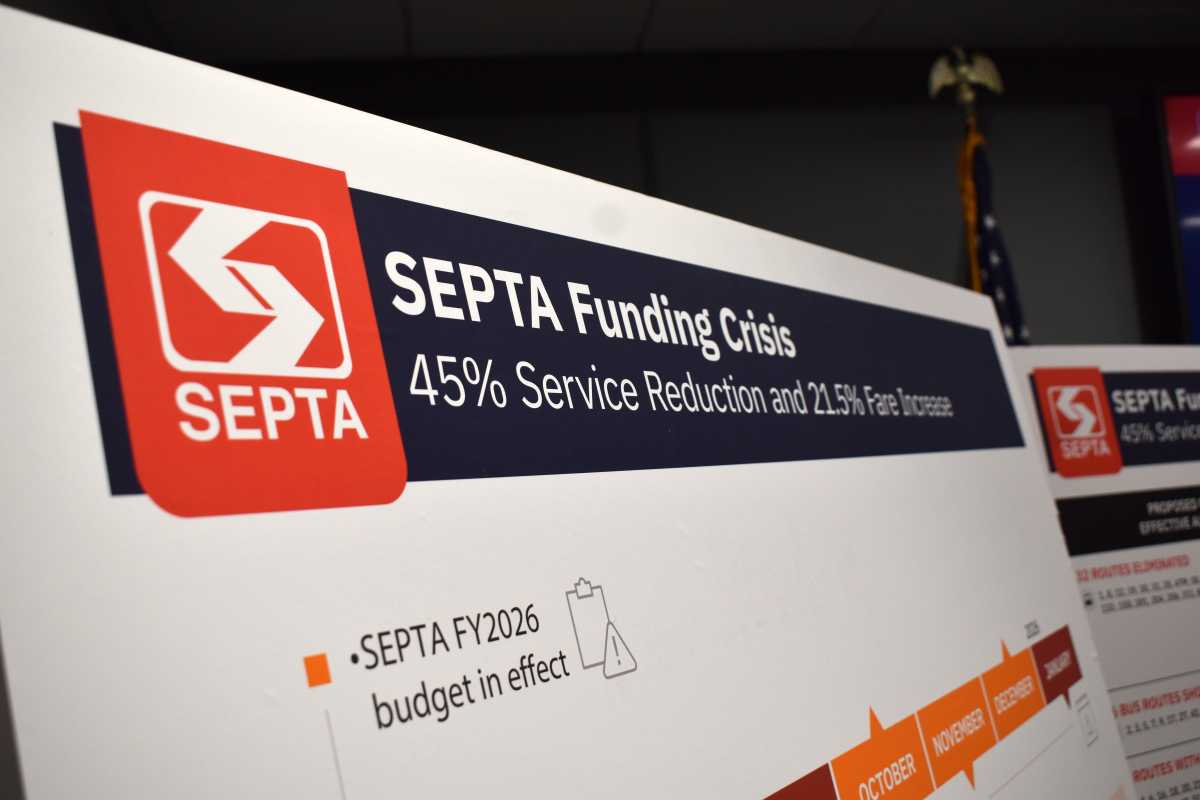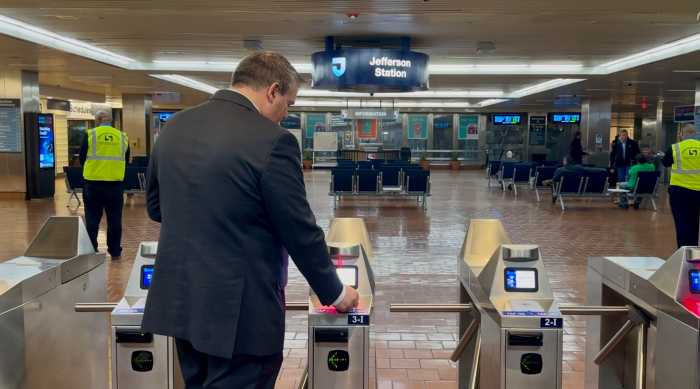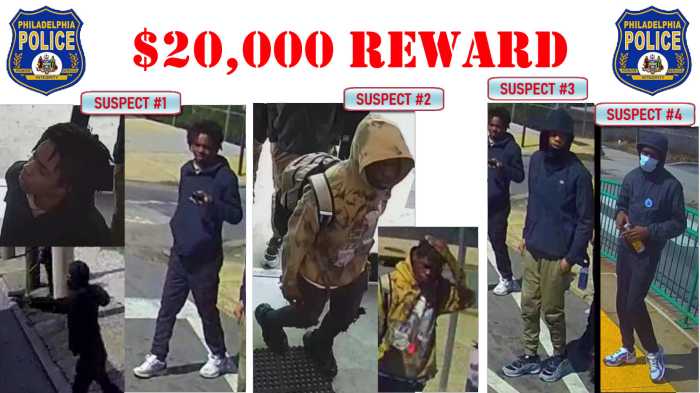SEPTA presented a plan Thursday to cut nearly half of its public transit service – eliminating dozens of bus routes and Regional Rail lines – if state lawmakers do not act to help cover the authority’s $213 million budget deficit.
The reductions would be coupled with a 21.5% fare increase, a hiring freeze and potential layoffs as soon as next spring, according to SEPTA leaders.
Officials said the system would shut down 50 bus routes and suspend five Regional Rail lines by January 2026. Additionally, a 9 p.m. curfew would be put in place for all rail services, including the Market-Frankford and Broad Street lines.
“The reality is that we would start the dismantlement of public transit for our city and region as we know it today,” SEPTA’s interim general manager, Scott Sauer, told reporters during a morning news conference at the authority’s headquarters.
Gov. Josh Shapiro, in his budget proposal, put forward a plan that would increase transit funding and allow SEPTA to scrap the cuts, transit officials said. Similar measures have repeatedly passed the Pennsylvania House of Representatives, where Democrats hold a majority, but have thus far failed to garner the requisite support in the GOP-controlled state Senate.
Service cuts, fare hikes
Barring additional dollars from the commonwealth, changes would commence in late August, with a 20% service cut going into effect as SEPTA implements its fall schedules, Sauer and his team said.
Buses would stop running along 32 routes, and service would be curtailed on another 16 routes. Vehicle headways would increase on nearly all bus, trolley, subway and Regional Rail lines.
Then, in September, the authority intends to raise prices. The basic bus, trolley or subway rate would jump from $2.50 currently to $2.90, which Sauer said would make SEPTA among the most expensive transit systems to ride in the nation.
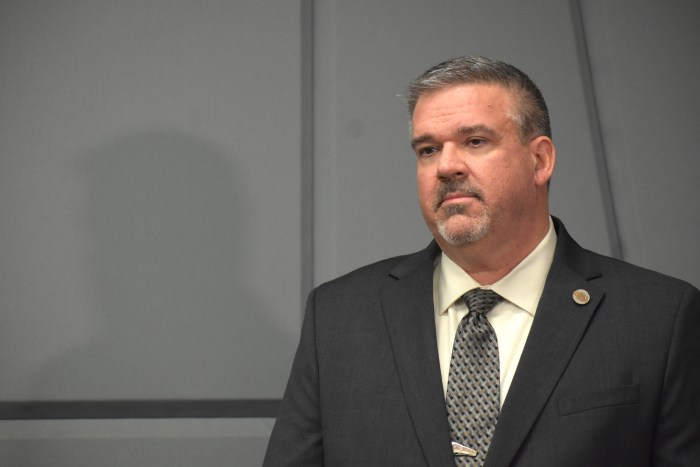
A few months later, at the beginning of 2026, SEPTA is planning to axe 18 more bus routes, the Broad-Ridge Spur and five Regional Rail lines, including some of the commuter rail system’s most-used services.
The Cynwyd, Chestnut Hill West, Paoli/Thorndale, Trenton, and Wilmington/Newark lines would be eliminated under the proposal. All of the lines use tracks owned by Amtrak, and SEPTA pays more than $65 million a year to lease the infrastructure, Sauer said.
At the same time, SEPTA would stop running trains after 9 p.m. on all remaining Regional Rail lines, the Market-Frankford and Broad Street lines and all trolley routes. That curfew would even apply to events at the South Philadelphia Sports Complex, and all sports express service is slated to be canceled.
A full listing of all the changes resulting from the 45% service reduction is available at septa.org/fundingcrisis.
Impact on riders and economy
SEPTA is not planning any special support for the Semicentennial next year, when Philadelphia will host FIFA World Cup matches and a celebration for the 250th anniversary of the Declaration of Independence.
The authority projects that the cuts will lead to a ridership drop of more than 40%, with 350,000 fewer trips on an average weekday, officials said.
“SEPTA will shift from driving the region’s economy to holding it back,” Sauer said. His team estimates the reduction plan will cost the city’s economy nearly 77,000 jobs and $674 million annually in lost tax revenue.
“Workers, students, residents and visitors would lose a critical transportation option,” said Chellie Cameron, president and CEO of the Chamber of Commerce for Greater Philadelphia, in a statement. “Employers would experience increased hiring challenges. And worst of all, talent and businesses could leave the region altogether.”
SEPTA’s fiscal hole arose in the aftermath of the coronavirus pandemic, as ridership lagged and federal relief dollars expired. Inflation and other factors have exacerbated the issue for agencies around the country, according to transit officials.
Efforts to help Pennsylvania’s public transit systems overcome their deficits stretch back more than two years.
Political gridlock
Shapiro, a Democrat, incorporated a provision into his statewide spending proposal last year. When the item did not make it into the final budget, SEPTA in November unveiled a plan with less severe fare hikes and service cuts.
Soon after, the governor decided to “flex” $153 million in federal highway funds to stave off SEPTA’s “death spiral.”
His most recent budget offering, released in February, would allocate a higher percentage of sales tax revenue to public transit, generating an anticipated $292.5 million for agencies throughout Pennsylvania.
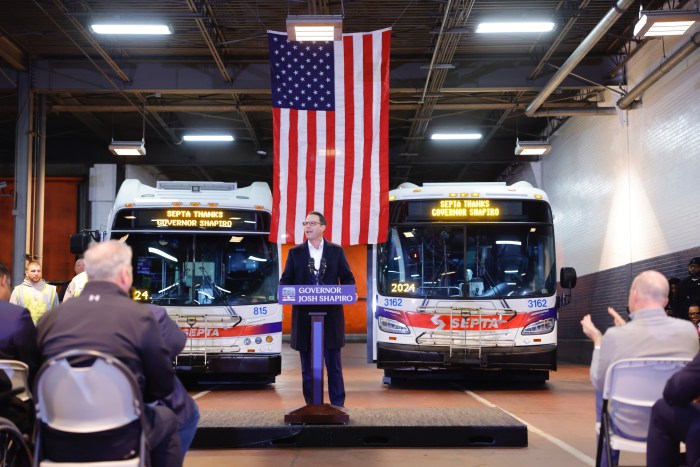
In a statement Thursday, Shapiro referred to SEPTA’s doomsday plan as “completely avoidable.”
“The state House has passed my proposal three times and plans to do so again next month – it is now squarely on the state Senate to come to the table and pass more funding for mass transit that their own constituents rely on,” he added.
Republican Senate Majority Leader Joe Pittman, whose district is in Western Pennsylvania, said SEPTA should come forward with “more modest requests,” given the commonwealth’s financial footing.
“This burden should not be placed entirely on Pennsylvania taxpayers, most of whom do not live within the service region and do not realize any benefit from SEPTA,” he said in a statement.
“This is an emergency,” City Councilmember Jamie Gauthier, of West Philadelphia, said. “Harrisburg Republicans must stop playing politics with our livelihoods and make a deal to fully fund mass transportation and keep Pennsylvania’s economy moving forward.”
During the last state budget cycle, SEPTA leadership presented its own budget assuming Shapiro’s proposed transit funding increase would be included in the state’s final plan. Sauer said they “budgeted on hope”; a different approach is being taken this year.
“Me personally, I’m still hopeful,” Sauer added. “I’m still optimistic that this is going to get done, but we have to plan using the resources that we currently have available.”
SEPTA officials noted that a series of austerity measures, such as a pay freeze for managers and less reliance on consultants, has saved $30 million. The authority has also generated $14 million from a 7.5% fare increase that went into effect in December.
Transit advocates and lawmakers gathered Friday outside City Hall to rally support for increased SEPTA funding.



